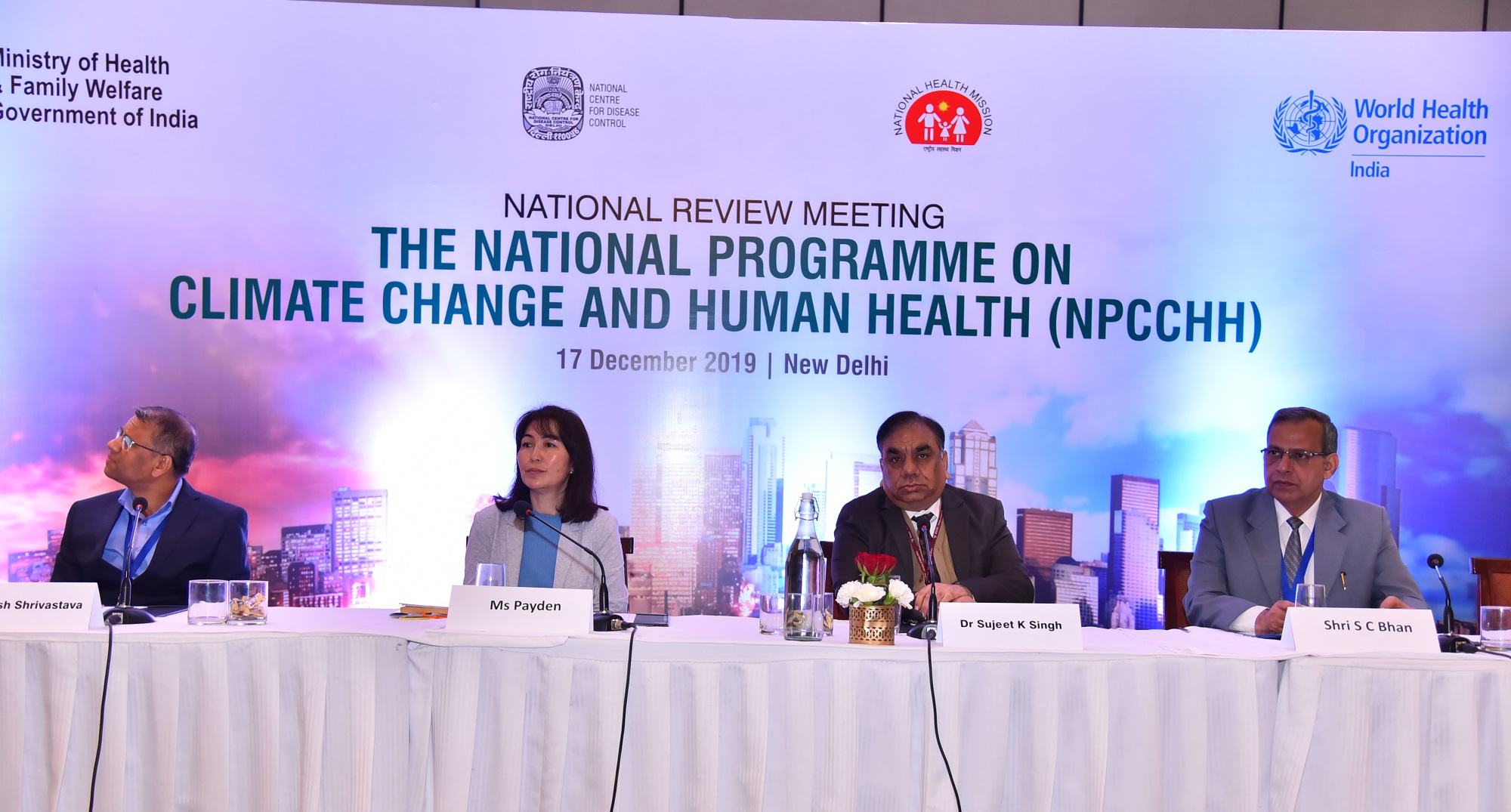Key Highlights:
- More than 30 states participated in the review meeting of State Plans on Climate Change and Human Health
- A cohort of 16 institutions established under the initiative to serve as center of excellence for climate change and health
- Focused discussions held on key thematic areas such as air pollution & health, heat & health, green and climate resilient healthcare facilities
New Delhi, 17 December 2019: A review meeting of the state plans developed under the National Programme on Climate Change and Human Health (NPCCHH) was organized to discuss challenges and share best practices to reduce health impacts due to climate change. State nodal officers (SNO) from more than 30 states were present along with the representatives from Public Health Foundation of India, National Institute of Malaria Research, World Bank, UN Environment Programme, TERI- The Energy and Resource Institute, National Health Systems Resource Centre, International Institute of Health Management Research and The Ministry of Environment, Forest and Climate Change.
 Ms Payden, Deputy WR, WHO Country Office for India in her inaugural address congratulated the Ministry of Health & Family Welfare and National Centre for Disease Control for establishing the much needed Programme on Climate Change & Human Health. Under this initiative, a cohort of 16 institutions has been formed to serve as center of excellence for climate change and health.
Ms Payden, Deputy WR, WHO Country Office for India in her inaugural address congratulated the Ministry of Health & Family Welfare and National Centre for Disease Control for establishing the much needed Programme on Climate Change & Human Health. Under this initiative, a cohort of 16 institutions has been formed to serve as center of excellence for climate change and health.
“Climate change is not only an environment issue, it is also a health issue. Health sector should take the lead in advocating with other sectors to reduce emissions as mitigation is key for protecting public health and saving lives”, she further added.
During his address Dr Sujeet K Singh, Director National Centre for Disease Control (NCDC) mentioned that climate change and diseases do not respect state borders, thus all stakeholders need to work together to reduce impacts of climate change. He highlighted the need for better surveillance mechanism for inter-sectoral data collection to guide policy and action.
The deliberations at the meeting highlighted that the state action plans must reflect the ground realities and trends – an imperative for developing focused strategies to address the key risk factors.
The participants concurred that NPCCHH must be a priority programme at the state level. Also, health department has outreach at the lowest level and this should be the strength of the state action plans.
The other key dignitaries present at the inaugural were: Mr SC Bhan, Regional Coordinator (Agromet) and Head, Power, Health and Transport sector Applications, Indian Meteorological Department; and Dr Aakash Shrivastava, Joint director & HOD Centre for Environmental & Occupational Health, Climate Change & Health and Head NPCCHH, NCDC .
